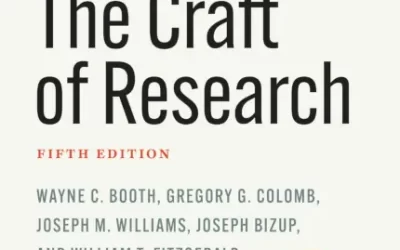Ibram X. Kendi’s How to Be an Antiracist: A Discussion

To truly embrace the pledge of equal opportunity employment and ensure fair treatment and opportunity for all workers, businesses, including those in publishing, must act to rectify imbalances resulting from a socioeconomic system based on the historical disadvantaging of certain groups based on their racial identities. The publishing industry has historically been very White, a concern addressed in the Antiracism Toolkit for Allies. There are many reasons for the lack of diversity in publishing, including the fact that it is hard for Black, Indigenous, and other People of Color to break into the industry due to obstacles such as unpaid internships and low-paying entry-level jobs.
Fortunately, there are now many tools available to those who recognize racial disparities and realize that reform begins with personal awareness and transformation (see, for example, How to Responsibly Write and Edit with Anti-Racism in Mind: Writing and Editing in the Time of Covid and Black Lives Matter.)
Our Technica Editorial reading group agrees that racial equity is an important part of creating a fair and balanced workplace environment. We came together to discuss how to support inclusivity in our workplace and within the publishing industry as a whole. We have written about combatting implicit bias in peer review, but there are many other areas in scholarly publishing that are affected by racism. We hope to learn how to identify and address racial dynamics in all areas of scholarly publishing so that we can contribute to meaningful change.
The concept of being actively antiracist is a new one to some of us and we were eager to learn more. Ibram X. Kendi’s How to Be an Antiracist was our choice of guide on this voyage. Based on thoughts that were originally shared during group discussion, below is a written exchange of ideas between two of the members of the discussion group, Brianna and Hayes.
Discussion
Brianna: Ibram X. Kendi’s book How to Be an Antiracist sets out to be a blueprint for establishing racial equity that offers a comprehensive guide for identifying and challenging racist thought. I think the book is a very well-researched and excellently written reflection on Kendi’s personal experiences with racism that have shaped his understanding of the disadvantages of his Black identity and it can serve as a great starting point for understanding how anti-Black racism affects Black people.
Hayes: I appreciate a lot of the points Kendi makes and the action items that can be rounded up from each chapter, but it still feels like there is something “missing” that causes some of the logic not to flow, and some definitions and conclusions to seem reductionist and unstable. My interpretation is that the content is largely black and white, with little gray area to navigate.
Brianna: I think that since Kendi’s book is primarily a memoir, it distills a lot of the concepts presented in antiracist literature and contextualizes them within his own personal experiences.
Hayes: In my opinion, the way Kendi makes logical deductions from his own personal experiences leaves little room for reflection or interpretation, and this is why the book doesn’t lend itself well to group discussion.
Brianna: I agree with your point about the limitations of discussing systemic racism through the lens of personal experience. Personal experience is very valuable, but in order to discuss the merits of a book that aims to challenge the systemic underpinnings of racism, it is important to start with an understanding of how those systems are constructed and sustained, which this book kind of frog-leaps over.
Hayes: Maybe Kendi’s aim is to provide a compilation of his interpretations and theories on antiracism, based on years of research and experience, as a starting point. Maybe the intention is for the reader to dissect the theories and deductions they do not understand by continuing to educate themselves and seek additional resources. Exploring antiracist concepts further could help readers to really understand and unpack how he extrapolated a lot of his conclusions from the literature.
Brianna: I think it is important for Black and non-Black readers alike to have a really strong understanding of the antiracist literature Kendi’s ideas are pulled from. Otherwise, his ideas can only be discussed through the prism of one person’s experiences with racism as a Black or non-Black person. Overall, this book is useful in offering antiracism activists a pathway into antiracist dialogue, as he’s done the intellectual work of distilling antiracist academic discourse and filtering it through his perspective as a Black man.
As a discussion group, we were left eager for literature that would guide us to step toward dismantling racism and How to be An Antiracist was helpful for narrowing down our search. While we considered books drawn from experience, we also discussed the importance of moving to direct action. We decided that our goal is to create a toolkit for identifying ideologies that are hardwired into our society’s political and economic institutions and create obstacles to true equity and equal opportunity for all.
What are some books that you think could spark meaningful group discussions about dismantling racism? Let us know in the comments section below.




